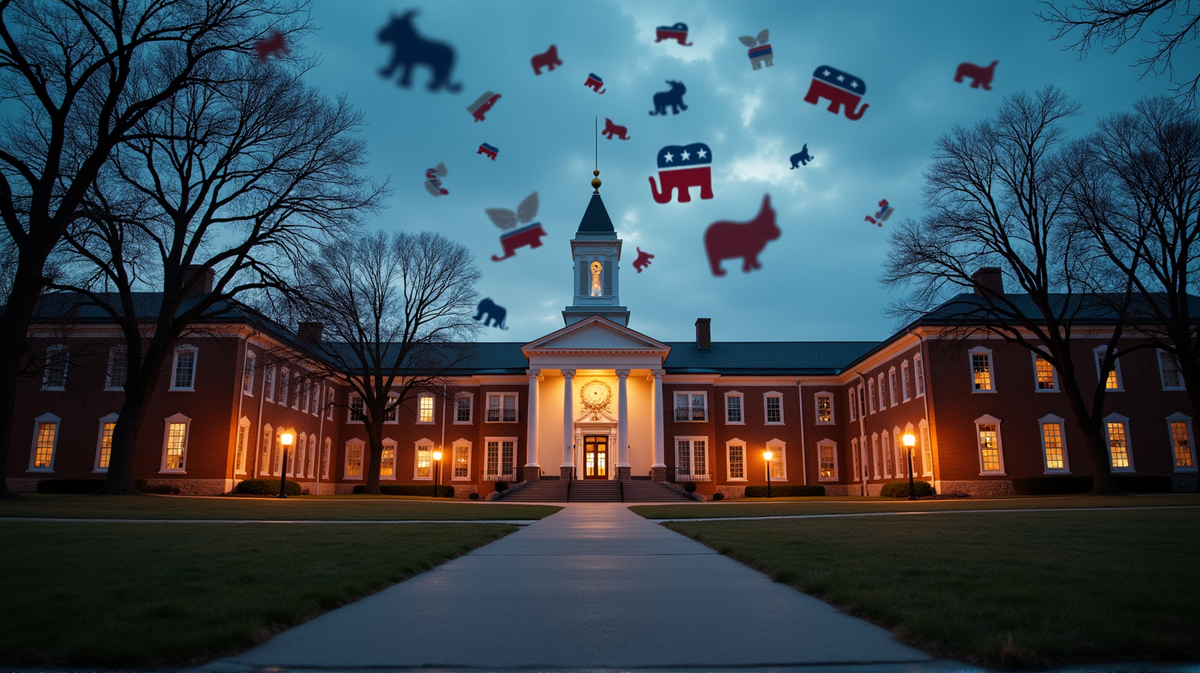Grinnell's Contribution Conundrum: A Decade of Favoring Democrats
A surprising 98% of Grinnell College employees' donations favored Democrats in a county dominated by Republicans.

In the heart of Poweshiek County, where red prevails at the polls, stands Grinnell College—a liberal citadel within a conservative landscape. Over the past decade, an astonishing 98% of $400,000 in political donations from Grinnell College employees has supported Democratic candidates and causes, an intriguing departure from the county’s overarching Republican allegiance.
A Democratic Stronghold in Red Territory
While Poweshiek County paints itself Republican, evidenced by Donald Trump’s triumphant runs securing majorities from 2016 to 2024, Grinnell College presents a striking anomaly. Embedded in this politically red county, the college’s community emerges as a defiantly blue oasis. In 2024 alone, Grinnell’s employees contributed $76,871 to Democratic endeavors, showcasing a steadfast alignment with liberal ideals.
Higher Education’s Leftward Lean
Grinnell College’s Democratic inclinations reflect broader national trends aligning advanced education with liberal beliefs. Professor Courtney Nava notes this shift, explaining how academic affiliations naturally gravitate towards Democratic support due to policy interests favoring educational institutions and research funding—an essential alignment for scholars in Republican-dominated legislative terrains.
Increased Contributions During Election Years
Escort the rhythm of election cycles comes a crescendo in political donations—“salience” as political scientists term it, drawing out an amplified engagement from Grinnell’s faculty and staff. This cyclical surge emphasizes their role not only as educators but as active citizens, financially championing causes resonant with their academic and personal ideologies.
Voices of Advocacy on Campus
Grinnell’s campus echoes with advocacy, manifest in rallies and expressions of solidarity, particularly within underrepresented communities. February 2025 saw a significant protest against perceived anti-trans legislation reflecting the college community’s commitment to inclusivity and diversity. Such activism underscores their political donations, making Grinnell’s employees not just contributors but catalysts for change.
Criticism and Controversy
Despite these ideals, the predominant Democratic support has drawn Republican scrutiny. Critiques label the institution’s political bias as intruding upon academic purity, a view contested by Grinnell’s administration emphasizing academic freedom’s sanctity. As Ellen de Graffenreid asserts, these donations reflect personal agency, detached from academic obligations—a testament to a decision left to individual conscience rather than collective pedagogy.
Navigating the Political Divide
In the broader spectrum of higher education’s political discourse, Grinnell’s donations ignite conversation over academia’s role in shaping political landscapes. A balance must be managed between personal choice and institutional integrity, a narrative unfolding within these storied halls of learning. Grinnell College remains a microcosm of the greater educational arena, embodying the tension and triumph inherent in America’s diverse political tapestry.
According to The Scarlet & Black, it’s a narrative where dichotomies dance and ideologies inspire, inviting beyond-the-classroom contemplation on democracy’s dynamic domain.





